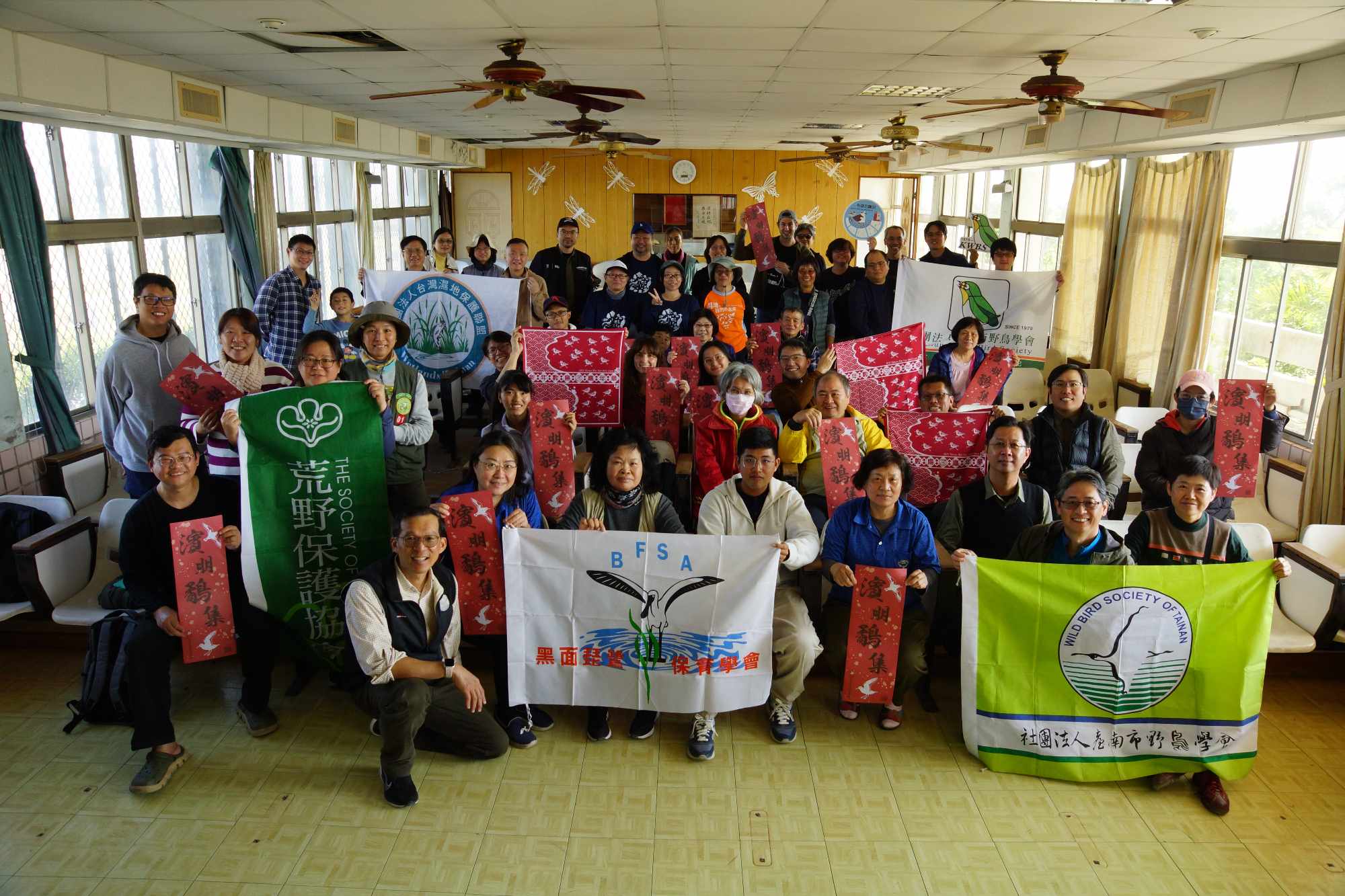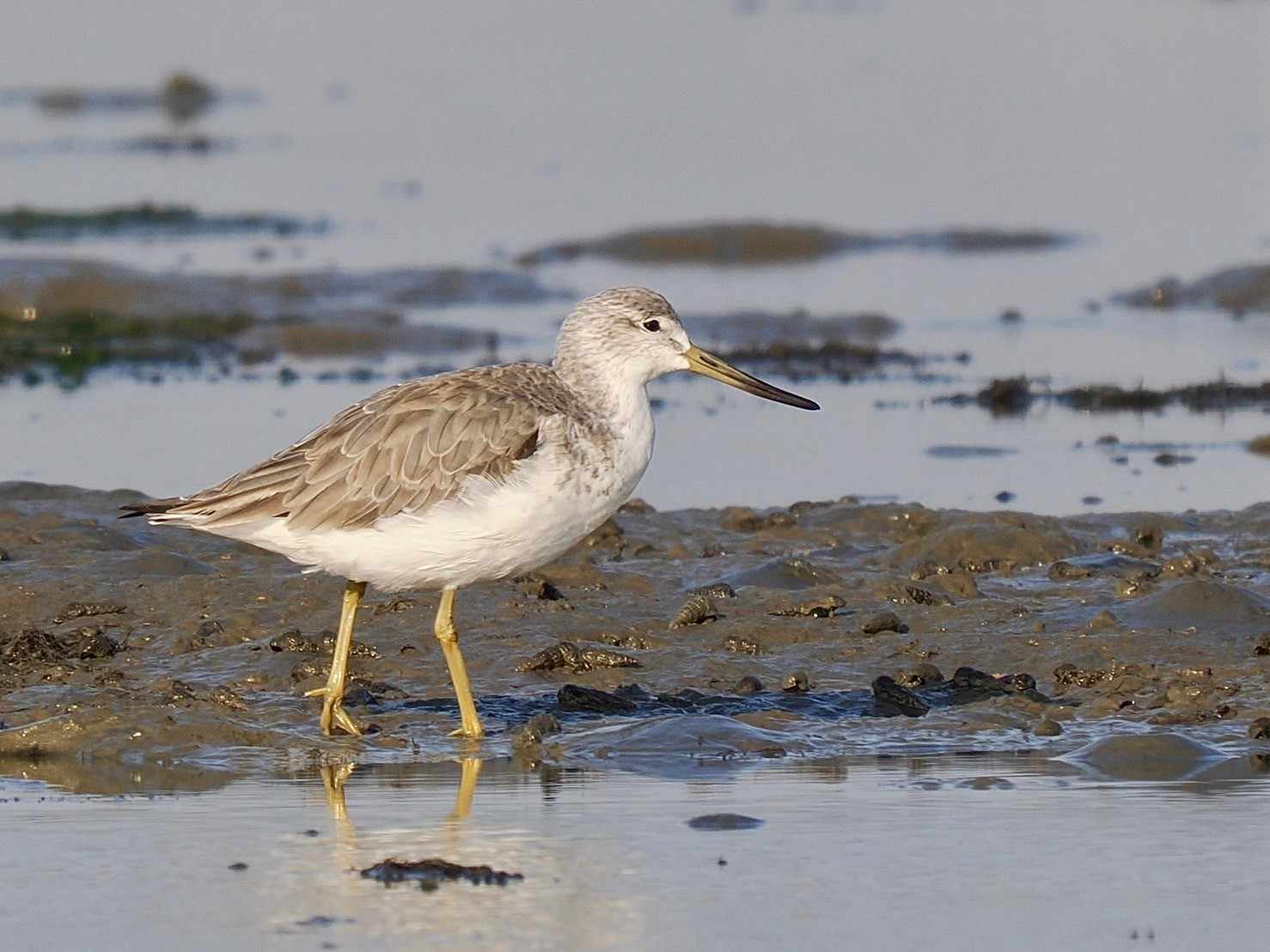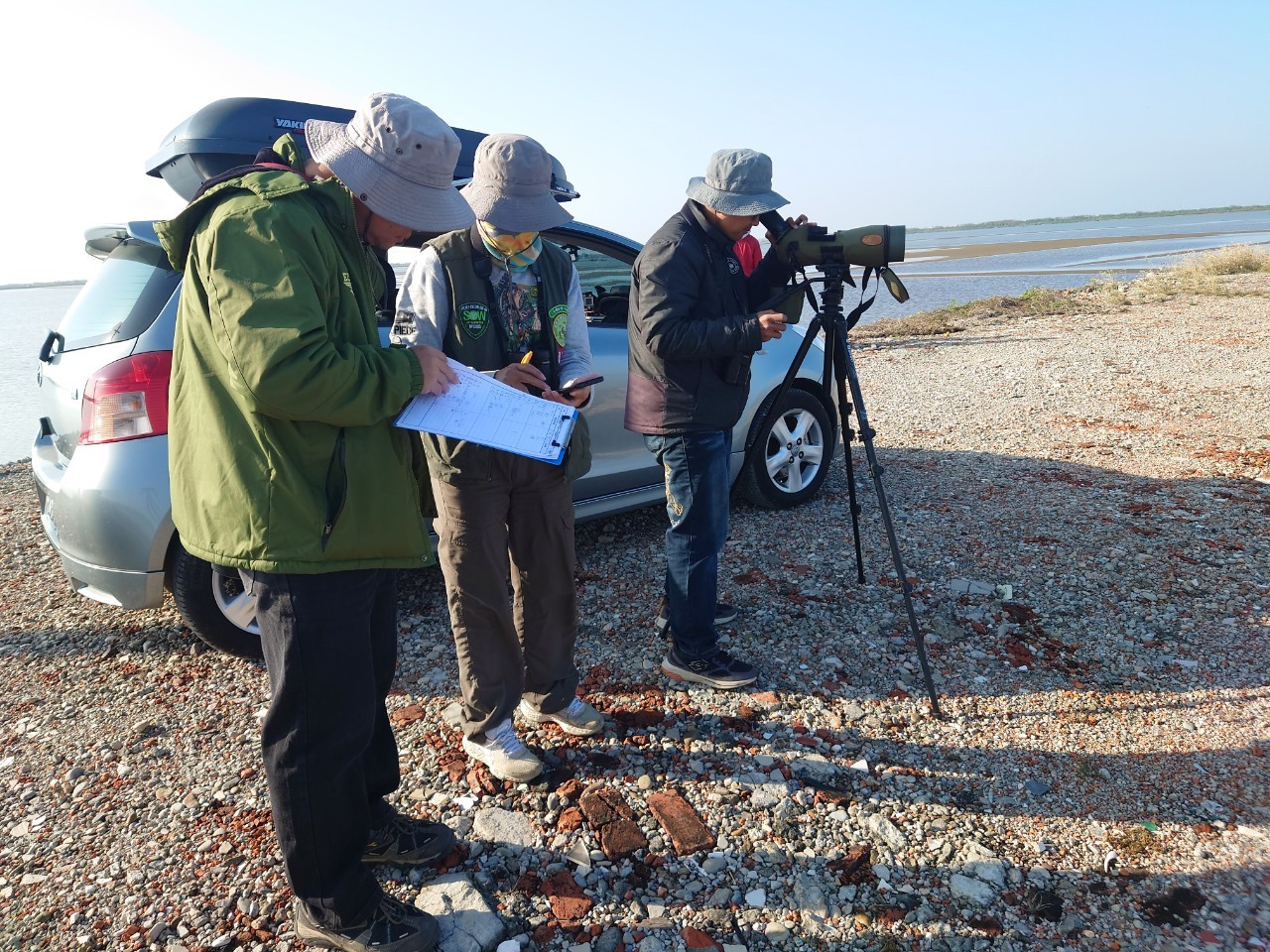Over 25,000 Wintering Birds Counted at Tainan's Chiku and Jiangjun Salt Pans

Members of the Chiku and Jiangjun Salt Pan Wetlands Restoration Alliance
On January 4th, 2025, the seven organizations which make up the Chiku and Jiangjun Salt Pan Wetlands Restoration Alliance conducted the Taiwan New Year Bird Count survey at Tainan City's Chiku and Jiangjun salt pans. In total, over 25,000 individuals representing 90 species were observed. Notably, the globally threatened Nordmann's Greenshank was recorded at the Jiangjun Salt Pans for the ninth consecutive year, demonstrating a high level of habitat fidelity. The alliance calls on the public to pay attention to and appreciate the rich ecology of these salt pan wetlands.
The Taiwan New Year Bird Count is an annual nationwide citizen science project whose goal is the long-term monitoring of wintering bird populations in Taiwan. This is the third year the Chiku and Jiangjun Salt Pan Wetlands Restoration Alliance has participated in the activity. Over 60 people participated in these simultaneous bird surveys which took place across key salt pan areas, including the Dingshan Salt Pans, the Qingkunshan Fan-shaped Salt Pans, the Taiqu Salt Pans, the Qingkunshen Salt Pans, as well as surrounding areas.
This year's survey recorded the highest numbers in three years, with a total of 90 species and 25,757 individual birds. Globally threatened migratory waterbirds recorded include the Nordmann's Greenshank, Bar-tailed Godwit, Red Knot, Great Knot, Saunders's Gull, and Black-faced Spoonbill. Some more uncommon species observed during the count included the Little Stint and Lesser Black-backed Gull. This is the ninth consecutive year that Nordmann's Greenshank was recorded at the site, marking it presence as an indicator of ecological health. The alliance stated that these results prove that proper habitat protection and management can significantly enhance a site's attractiveness and usefulness for birds. This wetland habitat not only provides a safe haven for migratory waterbirds but also highlights the crucial role of wetland conservation in safeguarding global biodiversity.

Nordmann's Greenshank (Credit: Wild Bird Society of Tainan)
The salt pans, which had fallen into disuse due to years of neglect, are now gradually being restored thanks to the joint efforts of the alliance. Despite past challenges such as damaged sluice gates and collapsed drainage channels, proper management and restoration actions have successfully revived it, creating diverse environments suitable for multiple bird species. This includes deep water areas that now support geese and ducks as well as shallow mudflats which provide feeding grounds for shorebirds like plovers and sandpipers. In addition, habitat and water level adjustments have benefited endangered species like the Black-faced Spoonbill. Meanwhile, in certain areas, vegetation such as mangroves were retained to offer shelter and hiding places for species like rails and forest birds. This multi-habitat approach has created a win-win situation for both habitat diversity and biodiversity conservation.
This year's NYBC also promoted conservation awareness to the public. An activity at the Dingshan Birdwatching Pavilion provided guided birdwatching tours which allowed visitors to experience the beauty of wetland ecosystems up close. At the same time, the event was focused on citizen science, inviting those who were interested in bird surveys to take part in such events in the future and contribute to Taiwan's avian research work.
The Chiku and Jiangjun Salt Pan Wetlands Restoration Alliance is composed of the Taiwan Wild Bird Federation, the Taiwan Black-faced Spoonbill Conservation Association, the Wild Bird Society of Tainan, Wetlands Taiwan, the Taiwan Environmental & Planning Association, the Society of Wilderness, and Tainan Sprout. Established in 2022, the alliance has adopted 1,605 hectares of abandoned salt pan wetlands from Taiwan's National Property Administration. As part of its management plan for the adopted land, the alliance conducts regular patrols, monitors ecological changes, maintains the environment, and collaborates with local communities and schools to promote sustainable wetland use and environmental education. The overall goal is to revitalize the salt pan wetlands and ensure sustainable development for future generations.
Issuing Organizations: The Taiwan Wild Bird Federation, The Taiwan Black-faced Spoonbill Conservation Association, The Wild Bird Society of Tainan, Wetlands Taiwan, The Taiwan Environmental & Planning Association and The Society of Wilderness, and Tainan Sprout

Members of the Chiku and Jiangjun Salt Pan Wetlands Restoration Alliance participate in the Taiwan NYBC.
